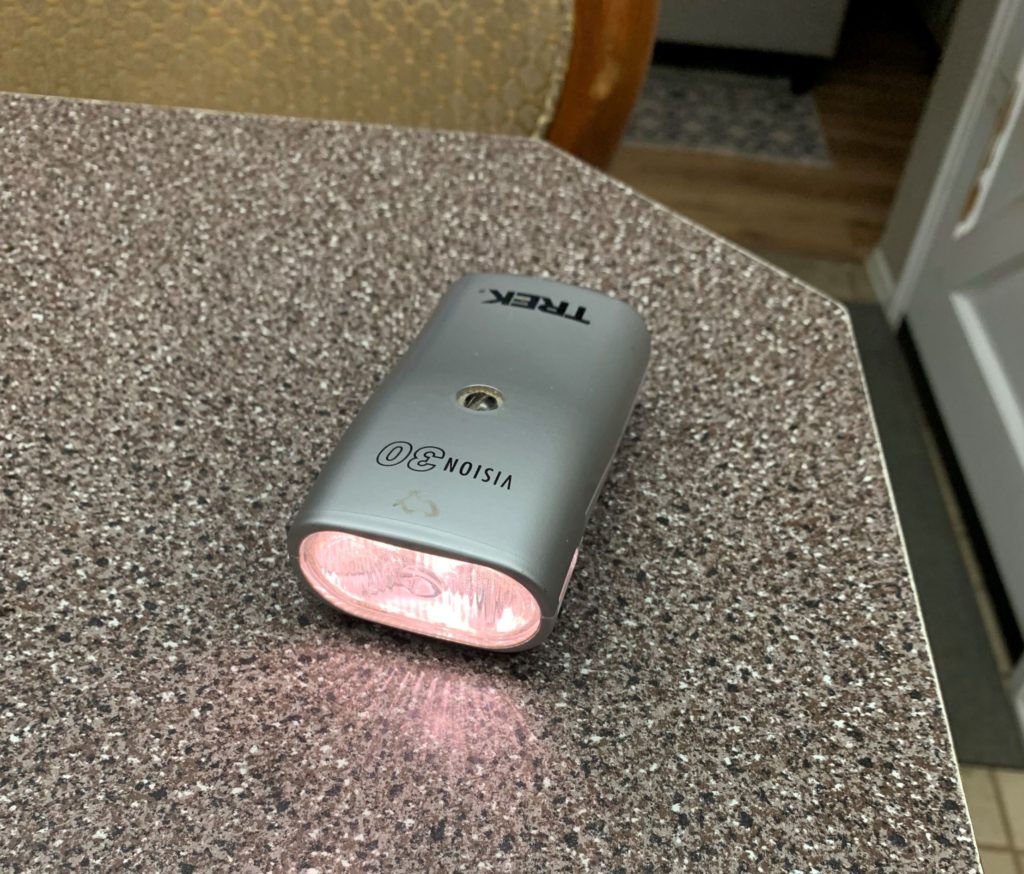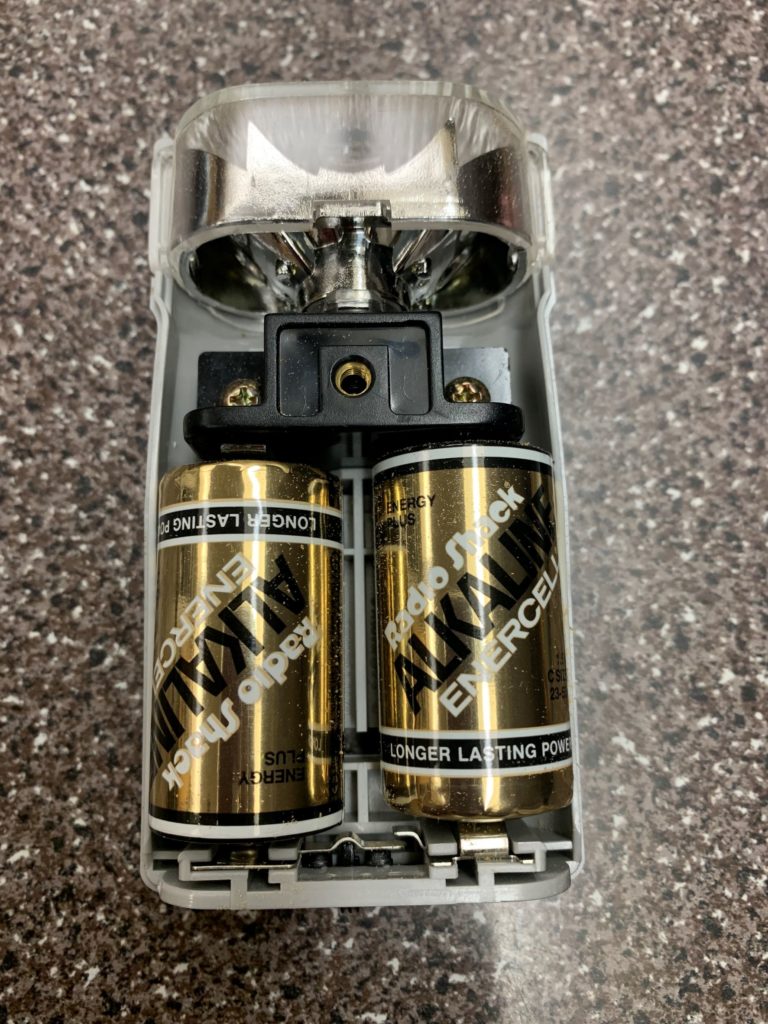I have an experiment going on. I got this bicycle light for Christmas in 1994. I got the batteries for this light at the same time. Guess what, they still work. That is 27 years later, functioning alkaline batteries. I like to check the light every couple of years to see if it is still working.
This is not getting any sort of preferential treatment. The light has been in the unheated/uninsulated garage since 2005. I am pretty sure they were in my garage in South Carolina for three years and in another garage for two previous years. While the batteries are not getting the more extreme cold, it it a few degrees above ambient.
There has been a lot of life that has occurred in this time period. I was doing some thinking over that course of time.
- 14 vehicles
- 9 cell phones
- 6 PCs
- 5 dogs
- 3 houses
- 2 children
- 1 Bachelor’s Degree
- 1 Marriage
I purchased my first bicycle in 1992. I took it to school with me and it got stolen in May 1994. So, during the summer of 1994 I purchased a replacement. This light was to comply with night riding law on my new bicycle. It was my only mode of transportation at the time.
As a kid, batteries were scarce. Usually we would get some at Christmas or a birthday with the gift but that was it. We were on our own after that. We might buy a four pack with our own money but this was why I largely listened to the radio on my Walkman and not tapes because it was a lot more efficient on battery power. My boombox stereo never had batteries because it was too expensive to feed it 6, D cell batteries and we didn’t have them in the first place. Remote control cars sat idle. Any batteries we did have were moved between devices at the point of use.
This is the reason why I still have the batteries in my bicycle light because I was saving them until I really needed them and then I forgot about the bike and the light. It is also why I get frustrated when my kids run through a set of batteries every two or three days on the X-box controller. They have no appreciation for what always having batteries available means.
I have no real explanation what makes this situation different. I have some theories however and the stem to prior manufacturing techniques. Yesterday, I was saying that it seemed liked batteries rarely leaked. I know that batteries have become significantly more prevalent than 25 years ago. That has driven increased capacity demand which means new machines that don’t work as well as the original. The other possibility was a tweak in chemistry or materials that make them more susceptible to failure.
When we lived in Lancaster, SC Duracell had a plant that made 2.3 billion AA annually and employed 1200 people. That plant closed in 2019 and now those batteries are made elsewhere (LaGrange, GA). So, we know there is a least one recent change. When we lived there, my mind said that brand loyalty was supporting the local community.
From my research, I found that Radio Shack batteries were largely made by Enercell the parent company of Energizer/Eveready. The documentation gets lost a little in the mid-1990s and now no one cares so I didn’t find any smoking guns. My traditional view held that Energizers failed at a higher rate than Duracell. Plus, Costco sells a deeply discounted value pack which is convenient. So my recent preference has been Duracell. As a value brand, I have not had the same problems Panasonic, that may warrant some more investigation as my frustration with the two American consumer brands is shaky at best.
End Your Programming Routine: I am not correlating everything old is better, even in the battery arena. The cordless tools of 1994 cannot hold a candle to the tools purchased today. I think that reduced cost and the proliferation of batteries have lowered customer expectations. Let’s be honest, most consumer electronics are disposable and a ruined battery is a chance to upgrade. I have said many times ‘buy once, cry once’ so I really don’t appreciate when my CCrane portable radio is ruined because of some leaking batteries.


Recent Comments